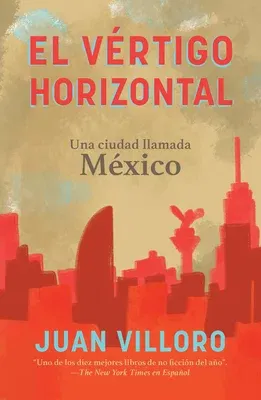Con mirada atenta y pulso firme, Juan Villoro se desdobla en
periodista, transeúnte, comprador de plumas, adulto nostálgico, padre
responsable, brigadista de emergencia, y nos ofrece un testimonio de las
múltiples experiencias que la capital mexicana depara a todos y cada uno
de sus agremiados.
Convencido de que quizá la Ciudad de México no sea el lugar más
aconsejable para vivir, pero también de que es tan intrincada y
apasionante que resulta imposible abandonarla, Villoro propone este
libro escrito desde la devoción del urbanita recalcitrante y maravillado
que se despliega como un rompecabezas infinito: los atajos viales, el
cine de luchadores, los héroes nacionales, el comercio tepiteño, la
tramitología gubernamental, el enigma de las vulcanizadoras, las
incontables multitudes, la ingesta de chile, los templos ancestrales.
El autor también narra ciertos pasajes autobiográficos, como el último
paseo con su abuela o el recuerdo de la colonia de casas abandonadas
donde creció. Ya sea desde la propia experiencia o a través de la
escucha y la investigación de las realidades ajenas, Juan Villoro
compone un gran fresco del caos entrañable y eterno que conforma la
capital mexicana. El espacio en el que ya nada cabe, pero nada nunca
sobra: Chilangópolis.
ENGLISH DESCRIPTION
With a sharp-eyed and attentive look, and with a firm pen, Villoro
unfolds into a journalist, a passerby, a street buyer, a nostalgic
adult, a responsible father, an EMT, and offers a testimony of the
multiple experiences that the city has in stored for each and every one
of its residents
Convinced that Mexico City may not be the most logical place to live,
but also that it is so intricate and exciting that it is impossible to
leave, Juan Villoro offers this book written from the devotion and
commitment of a stubborn and amazed urbanite and unfolds like an
infinite puzzle: the shortcuts within the city, the wrestling fighters,
national heroes, the Tepiteño open-air market, government red tape, the
enigma of the vulcanizers, countless crowds at any given time, the over
the top ingestion of chile, the ancestral temples. The author also
narrates certain autobiographical events, such as the last stroll he
took with his grandmother or his memories of the abandoned houses in the
neighborhood where he grew up.
Either from his own experience or through listening and investigating
other people's realities, Juan Villoro composes a great fresco of the
endearing and eternal chaos that makes up the Mexican capital. The space
in which nothing else fits, but where nothing is superfluous:
Chilangopolis.

